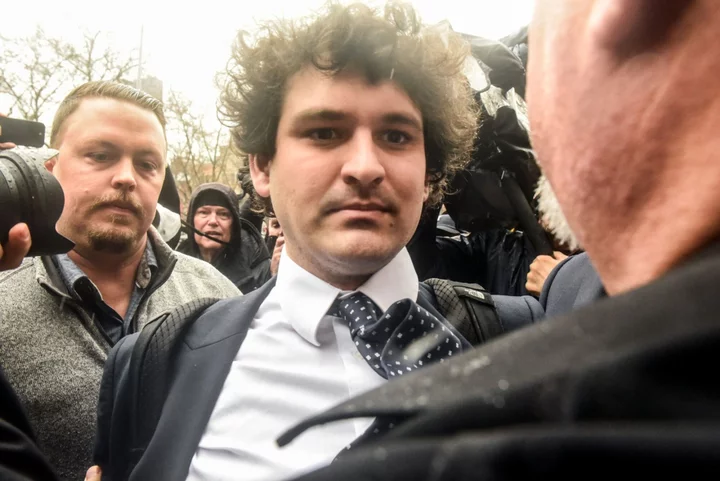When former crypto titan Sam Bankman-Fried was convicted of seven counts of fraud and conspiracy on Nov. 2, US Attorney Damian Williams called the case “one of the biggest financial frauds in American history.”
While that’s undoubtedly true based on the dollar figures involved, academics say the scandal’s legacy likely will be more complicated than relatively straightforward frauds like Bernie Madoff’s infamous Ponzi scheme or the crimes committed by Elizabeth Holmes at her blood-testing company, Theranos Inc. That’s because the rise and fall of FTX isn’t just a story about the misdeeds of one person, but rather a broader tale about the sudden mania that erupted around a new type of financial system designed to circumvent the regulatory guardrails meant to protect investors from exactly this type of outcome.
Cornell Law School professor Saule T. Omarova draws a parallel between the Bankman-Fried trial and the global financial crisis of 2008, which she said was “so obviously linked to institutional practices and regulatory failures” that the focus was on banking system’s shortcomings. Bankman-Fried’s case raises the question: Is it really just about one man’s fraud, or does it prove that the entire model of the cryptocurrency market is flawed?
“It’s disheartening to see how easy it is for a new kind of business to grow in the financial sector to such prominence and size in such a short period of time,” Omarova said. “The law and regulation had very limited reach into that sphere and there was no political appetite to sit down and think about the systemic implications of allowing these types of business to flourish.”
After the financial crisis of 2008, Congress passed the Dodd-Frank Act, which overhauled US banking regulations to protect borrowers and the financial system. And in 2019, the US Securities and Exchange Commission published a list of the reforms it undertook following the Madoff scandal, including revitalizing the enforcement division, enhancing safeguards for investors’ assets and conducting risk-based examinations of financial firms.
Yet efforts to bring more order to digital-asset markets through legislation have long been stalled in a deeply partisan US Congress. That’s left regulators like the SEC to police the industry as best as they can based on laws already on the books, resulting in complicated legal entanglements. In June, the agency sued market leaders Coinbase Global Inc. and Binance Holdings Ltd. for operating what they consider to be illegal exchanges. Both are fighting the regulator’s actions.
“Because the crypto industry has not yet become the source of financing for the real economy, it has not reached the kind of maturity that would focus everybody’s attention on structural problems,” Omarova said. “As much as we worry or care about individual investors who lost their money in FTX, somebody should have worried about how one, two, or 300 FTXs were allowed to grow over time.”
To some, Bankman-Fried’s case is emblematic of the era in which it occurred, a period in time when investors were especially blind to risks that now seem obvious in hindsight.
“This was like the grand finale of a magic show,” said Peter Atwater, an adjunct professor of economics at William & Mary who studies the role of confidence in business and markets. “We live in a golden age of illusion, where investors pour money into dreams that border on pure fiction.”
He added that the speed at which Bankman-Fried’s rags-to-riches-to-rags tale unfolded makes the case difficult to compare with fraudsters like Madoff, the financier who was sentenced to 150 years in prison in 2009 for stealing $65 billion from thousands of investors. Madoff executed his Ponzi scheme over the course of more than 20 years. Holmes, who was sentenced to prison for more than 11 years for defrauding investors of nearly $145 million, saw the rise and fall of Theranos play out for over a decade.
“FTX rose and fell in the span of a year,” Atwater said. “It was one of the last partygoers to the event, and they arrived on the scene when confidence was at its highest and scrutiny was non-existent.”
That confidence is gone forever for some of the FTX customers who are owed $8.7 billion from the exchange. And not just when it comes to Bankman-Fried’s company alone. Amy Fisher, a former FTX customer who filed a claim to recover her assets, said that the funds she lost did not constitute her life savings, yet it was enough for her to turn her back against digital currencies altogether.
“I wouldn’t trust crypto with a 10-foot pole,” the 29-year-old said. “When I lost my money, I vowed to stay away from the industry. There were so many instances where I dodged a bullet, but it gets tiring after a while.”

